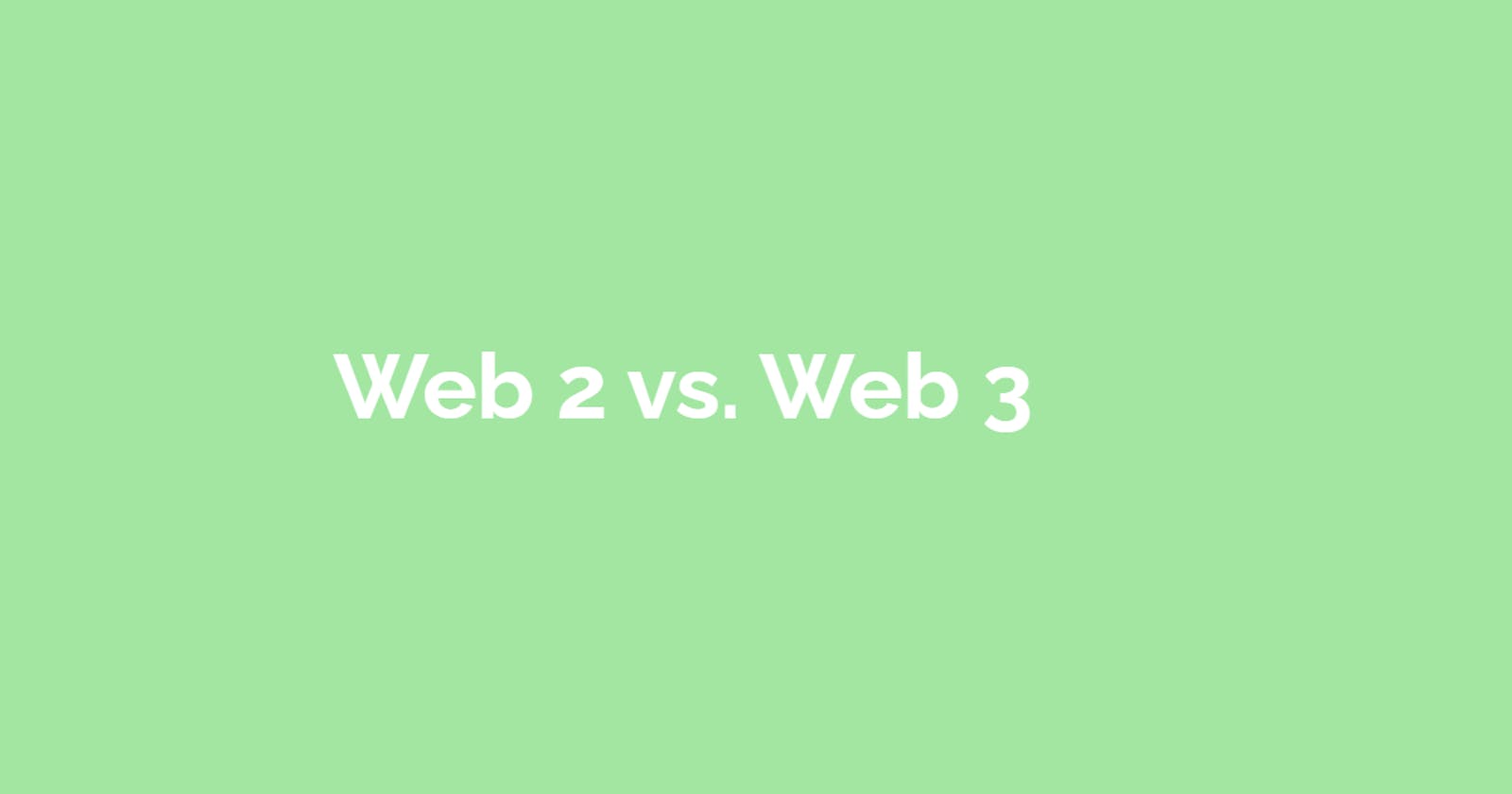INTRODUCTION
Web 3 has been a word gaining a lot of popularity recently, and it's been trending, and opportunities have stemmed from this field. Some know the word Web3 exists but do not know its meaning. Some people also mistake it for Web2 or find it hard to differentiate between the two. In this article, we will be discussing these two terms and their differences.
What's Web2?
Web2 can be thought of as the interactive web. It refers to end-user interoperability (i.e., compatibility with other products, systems, and devices) is emphasized on websites that promote user-generated content, simplicity of use, participatory culture, and interoperability (i.e., compatibility with other products, systems, and devices).
What's Web3?
Web 3.0, popularly known as Web3, is a notion for a future version of the Internet based on blockchain technology that integrates principles such as decentralization and token-based economics.
Now, what is the difference between these two?
Differences between Web2 and Web3
Web2 refers to the current version of the Internet that most of us are familiar with. A web dominated by businesses that offer services in exchange for your personal information. Decentralized apps that operate on the blockchain are referred to as Web3 in the context of Ethereum. These apps allow anyone to join without their personal information being sold.
Participants can engage without the need for authorization from a trusted intermediary or regulatory body since Web3 is trustless and permissionless. Web3 applications use decentralized peer-to-peer networks to execute. Decentralized applications, or dApps, are what they're called instead of "apps."
Web3 connects content in a way that the previous periods did not. A growing number of everyday gadgets connected to the "internet of things" (IoT) will have access to many blockchain-based decentralized applications (dApps).
CONCLUSION
In reality, both sides of the Web2 vs. Web3 argument have a future role to play. Instead of wagering on which battleship will sink the other, perhaps we might gladly embrace the better features of Web3 that can address some of Web2's shortcomings. After all, Web3 is only another critical component of the eventual metaverse.
P.S: I.m learning about Web3 from Blockgames, Nestcoin's, and Zuriteam.

